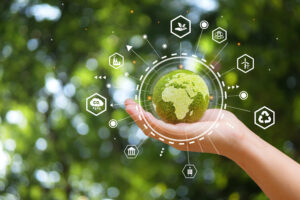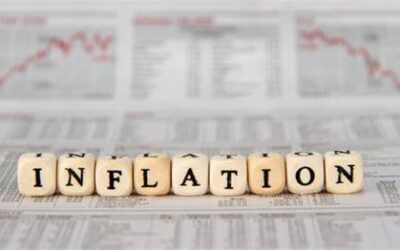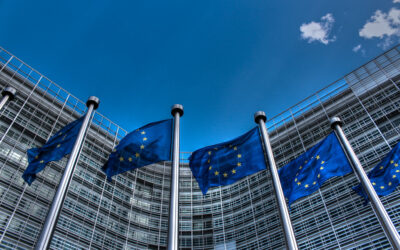
The year 2025 was expected to mark significant progress on the global sustainability front. Instead, it has begun with considerable headwinds. A rise in geopolitical instability, a noticeable political shift to the right in several regions, and delays from fast-moving consumer goods (FMCG) companies in delivering on their sustainability pledges have led many businesses to prioritize short-term gains over long-term environmental responsibility.
However, the growing severity of the climate crisis and increasing scrutiny from regulators and consumers alike are making it impossible to ignore sustainability. Companies that hesitate to engage with environmental, social, and governance (ESG) initiatives may find themselves outpaced by competitors capitalizing on the thriving sustainability market, valued at USD 774.6 billion in 2023. According to Euromonitor’s Sustainability Claims Tracker, products marketed with sustainability claims grew at a compound annual growth rate (CAGR) 1.1 percentage points faster than those without between 2020 and 2023.
To remain compliant, resilient, and competitive in 2025, companies must not only maintain their sustainability commitments but also innovate in how they deliver and communicate them. Here are three defining trends driving the global sustainability agenda this year:
Building Sustainability Resilience Amidst Political Volatility
Sustainability is increasingly shaped by political forces, with regulations serving as key drivers of corporate action. According to the Euromonitor Voice of the Industry Survey 2024, 71% of businesses globally report experiencing some level of government pressure to act on climate-related issues. Regulatory compliance, therefore, is becoming a cornerstone of long-term business strategy.
Yet, shifting political winds can easily disrupt this trajectory. In the U.S., for instance, a return to Trump-era policies—marked by withdrawal from climate accords, renewed support for fossil fuels, and trade-related tensions—is pushing some firms to retreat into short-term strategies that threaten sustainability progress.
Conversely, a wave of new and strengthened regulations—from the EU Green Claims Directive and Packaging Waste Regulation to Extended Producer Responsibility (EPR) laws and sustainable sourcing mandates—are making sustainability a non-negotiable business priority. Companies must learn to navigate short-term political and economic fluctuations without losing sight of long-term ESG goals to avoid regulatory penalties and reputational risks.
Integrating Sustainability into the Core Value Proposition
In 2025, economic uncertainty driven by global conflicts and inflationary pressures is intensifying the focus on profitability and pricing. For brands, this makes differentiation increasingly difficult—especially in price-sensitive categories.
For food and beverage products, traditional purchase drivers such as price, nutrition, and taste still dominate, with “lower price” seeing the biggest growth in importance from 2024 to 2025. However, sustainability-related attributes—such as “natural” and “organic”—are also seeing increased demand. In contrast, vague or generic labels like “eco-friendly” are losing favour as consumers demand clearer, verifiable claims.
To succeed, brands must identify which sustainability attributes resonate most with their target audiences and integrate them meaningfully into product development and marketing. Prioritizing the right categories, markets, and claims will be essential for both relevance and revenue growth.
Transparency and Accountability: The New Standard
Today’s consumers are better informed and more sceptical than ever. Transparency and accountability have become baseline expectations, not optional extras. This aligns with the “Eco Logical” trend forecast for 2025, which emphasizes the need for brands to substantiate their sustainability claims through clear and credible communication.
From sourcing to end-of-life disposal, consumers want the full story—and they want it to be trustworthy. Between 2020 and 2023, per capita global spending on sustainable goods rose by 23%, with 24 out of 25 markets showing growth. As consumer demand rises, so does the pressure on FMCG companies to disclose their environmental footprints and supply chain practices.
Technological tools like blockchain, QR codes, and digital labelling are making it easier to provide real-time, transparent product data. The upcoming EU Digital Product Passport, set to become mandatory for FMCG items by 2026, will further enforce this shift. Companies that adopt these tools now can build consumer trust, ensure compliance, and strengthen operational efficiency.
Conclusion
Despite a turbulent start, 2025 holds enormous potential for progress in sustainability—provided companies commit to a long-term vision grounded in accountability, innovation, and resilience. The road ahead will be shaped by how effectively businesses can adapt to regulatory pressures, align with consumer expectations, and embed sustainability at the core of their value propositions. Those that succeed won’t just survive in a volatile landscape—they’ll lead it.
References
Zuniga, J. (2025, March 28). Key Trends Shaping the Sustainability Agenda in 2025. Retrieved from Euromonitor International: https://www.euromonitor.com/article/key-trends-shaping-the-sustainability-agenda-in-2025
Photo:
https://www.bing.com/images/search?view=detailV2&ccid=Lv%2bUeaeD&id=916A2FD637DC7038E82EA1BD1DE9C723D7373003&thid=OIP.Lv-UeaeDW-nEfhAb3mHdnwHaE7



